
Drainage letter: There was a regrettable error made in the processing of the mailing list. If you received mail from Waikato Regional Council to your address but in another person’s name, please dispose of it. The information will be resupplied.


Drainage letter: There was a regrettable error made in the processing of the mailing list. If you received mail from Waikato Regional Council to your address but in another person’s name, please dispose of it. The information will be resupplied.

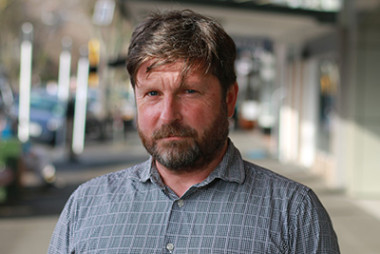
|
Blair Keenan | Principal Economist for Waikato Regional CouncilRegional councils play a key role in a region's economy by managing natural resources, ensuring sustainable development, and supporting economic growth through planning, infrastructure, and collaboration. |
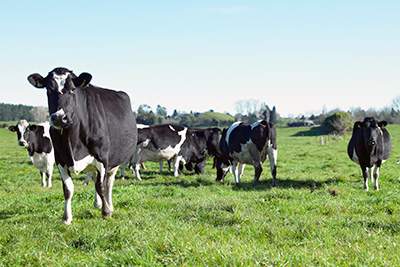
Fertile agricultural land, reliable water supply and a temperate climate make our region ideal for primary production.
These are troubled times. In the last few years, the global economy has been shaken by pestilence, war, natural disasters, famine and, more recently, global economic policy. And we are not immune or economically safe in our corner of the South Pacific. The Waikato region has an economy with a sizable focus on export and import markets and therefore what happens globally is vitally important to us as a region. “The Great Game” in the 19th century was the name given to the struggle between global powers for the resources of central and southern Asia. One might say that a new Great Game looks to be underway, with today’s world powers engaged in a new grab for resources.
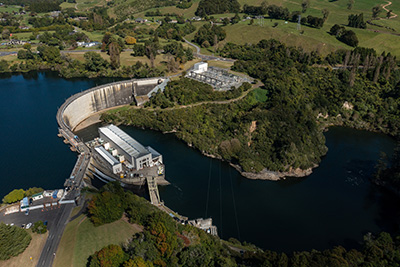
There are eight hydro stations along the Waikato River, as well as several other hydro schemes in the region.
Much like a global economy, a regional economy is built on its natural resources, location and people. Fertile agricultural land, reliable water supply and a temperate climate make our region ideal for primary production. These natural resources are the foundation of this country’s largest export industry, dairy, and the Waikato region is the dairy production powerhouse of New Zealand.
Our abundant water and geothermal resources also make us a powerhouse regarding energy supply. There are eight hydro stations along the Waikato River, as well as several other hydro schemes in the region. The Huntly Power Station is crucial to New Zealand's energy security because it provides baseload generation and reliable backup power while renewable sources are insufficient. We also have 10 of the 16 geothermal stations nationwide, providing 90 per cent of this country’s geothermal energy. This region has significant potential for renewable solar and wind generation, while our forest resources offer potential for innovative products.
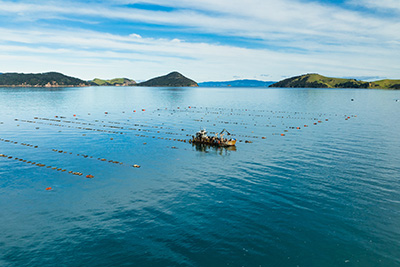
Our extensive marine area, covering more than 10,000 square kilometres, accommodates significant marine industries, including aquaculture.
Our extensive marine area, covering more than 10,000 square kilometres, accommodates significant marine industries, including aquaculture. Our region-wide aquaculture strategy, Growing together – Whakatupu ngātahi, developed in partnership with iwi, industry, local and central government and other stakeholders, promotes a growth pathway for aquaculture to become a more productive industry to support regional and local prosperity.
Our location, between the Port of Auckland and Auckland Airport and Port of Tauranga, brings significant economic opportunity and advantages. This proximity to these key international ports provides ready access to export markets and attracts business to the region, such as Waikato-Tainui Ruakura Inland port. It’s infrastructure, including road and rail, that effectively brings Waikato, Auckland and Tauranga closer together and that will solidify our role as a logistics hub and improve supply chain efficiency.
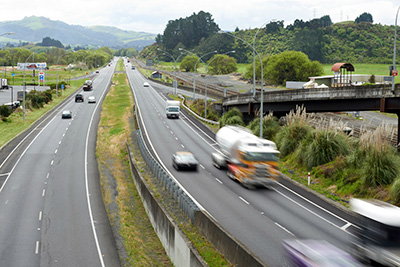
Our proximity to the Port of Auckland, Auckland Airport and Port of Tauranga brings significant economic opportunity and advantages.
Hamilton city is the fastest growing city in New Zealand, while the Waikato district and others have seen rapid growth spilling over from Auckland. Absorbing the growing labour force and ensuring it is engaged in highly productive industries will require capital investment in infrastructure and housing, alongside investments in human capital through education, science and innovation. This council, in partnership with all Waikato regional territorial authorities, has made a bid to the Government’s Regional Deals initiative for establishing long-term agreements with local government to make improvements in their region, for example to roads, infrastructure and the supply of quality housing.
As the region’s population and economy grow, and the effects of climate change manifest, pressure on our natural resources will intensify. As an example, our economy has evolved without much need to worry about water, but that is changing. Limits in water availability are already being reached in some areas of the region, and this will have impacts on these communities and their contribution to the regional economy. We’ve developed a draft water security strategy to support conversations on regional and local water security issues and to identify potential solutions.
Cyclones and other natural hazard-related events in recent years have disrupted economies. While this may not show up in GDP growth (since recovery and rebuilding is captured in the measure, but the loss of productive capital is not), recurring events will undermine a productive economy. Ensuring the vulnerability of communities and industries is minimised, and that the economy is resilient in the face of hazard events, will be critical in the context of a changing climate.
The laws governing our natural resources are currently undergoing reform. Central government plans to replace the Resource Management Act 1991 with two new acts – one focusing on land-use planning and the other on natural resource management. These reforms have the potential to have a major impact on the regional economy and on local government itself.
Getting it right will be crucial to achieving economic prosperity in the coming years. Regulatory decisions about resource use are often based on the idea of trade-offs between the economy and the environment – but arguably this misses the factor of time. If economic activity is a function of the environment (among other things) then economic activity now that reduces natural capital will reduce the capacity for economic activity in the future; the trade-off isn’t so much between the economy and the environment, it’s between the present and the future.
Get ready to participate in local elections 2025 for the Waikato region.